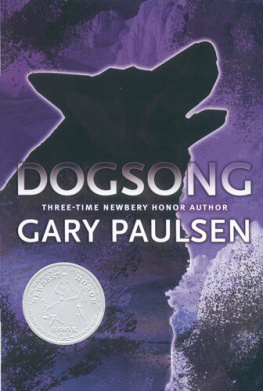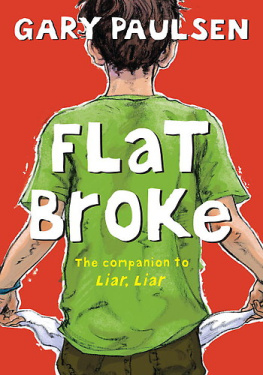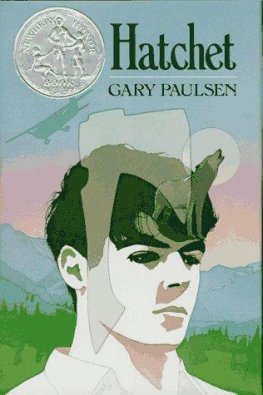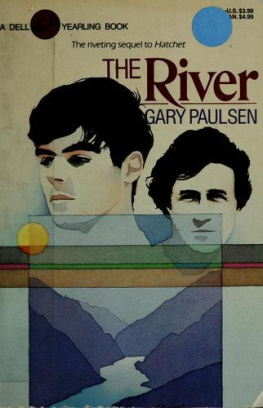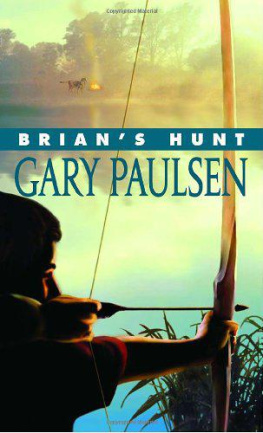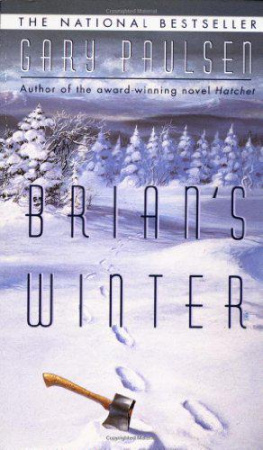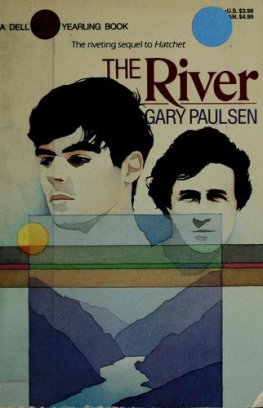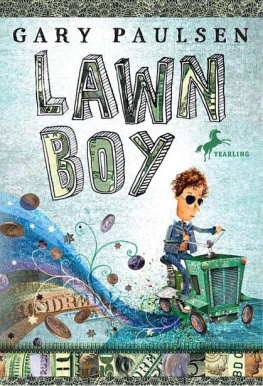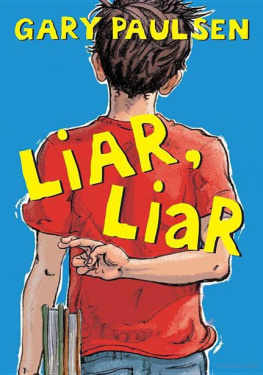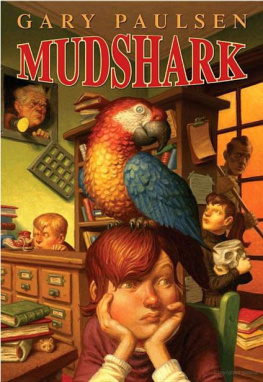Gary Paulsen - Woods Runner
Here you can read online Gary Paulsen - Woods Runner full text of the book (entire story) in english for free. Download pdf and epub, get meaning, cover and reviews about this ebook. year: 2010, publisher: Wendy Lamb Books, genre: Detective and thriller. Description of the work, (preface) as well as reviews are available. Best literature library LitArk.com created for fans of good reading and offers a wide selection of genres:
Romance novel
Science fiction
Adventure
Detective
Science
History
Home and family
Prose
Art
Politics
Computer
Non-fiction
Religion
Business
Children
Humor
Choose a favorite category and find really read worthwhile books. Enjoy immersion in the world of imagination, feel the emotions of the characters or learn something new for yourself, make an fascinating discovery.

- Book:Woods Runner
- Author:
- Publisher:Wendy Lamb Books
- Genre:
- Year:2010
- Rating:5 / 5
- Favourites:Add to favourites
- Your mark:
- 100
- 1
- 2
- 3
- 4
- 5
Woods Runner: summary, description and annotation
We offer to read an annotation, description, summary or preface (depends on what the author of the book "Woods Runner" wrote himself). If you haven't found the necessary information about the book — write in the comments, we will try to find it.
Woods Runner — read online for free the complete book (whole text) full work
Below is the text of the book, divided by pages. System saving the place of the last page read, allows you to conveniently read the book "Woods Runner" online for free, without having to search again every time where you left off. Put a bookmark, and you can go to the page where you finished reading at any time.
Font size:
Interval:
Bookmark:
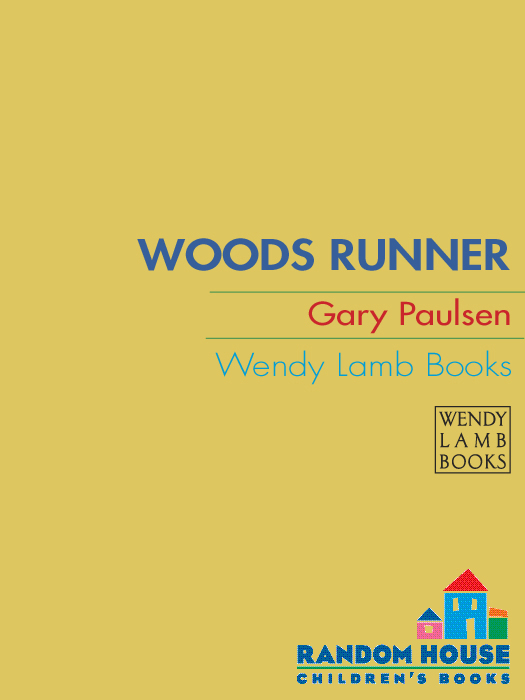
Also by Gary Paulsen
Alidas Song The Amazing Life of Birds The Beet Fields
The Boy Who Owned the School
The Brian Books: The River, Brians Winter, Brians Return, and Brians Hunt
Canyons Caught by the Sea: My Life on Boats
The Cookcamp The Crossing
Danger on Midnight River Dogsong
Father Water, Mother Woods The Glass Caf
Guts: The True Stories Behind Hatchet and the Brian Books
Harris and Me Hatchet
The Haymeadow How Angel Peterson Got His Name
The Island Lawn Boy The Legend of Bass Reeves
Molly McGinty Has a Really Good Day
The Monument Mudshark My Life in Dog Years
Nightjohn The Night the White Deer Died
Notes from the Dog
Puppies, Dogs, and Blue Northers
The Quilt The Rifle
Sarny: A Life Remembered The Schernoff Discoveries
Soldiers Heart The Time Hackers The Transall Saga
Tuckets Travels (the Tuckets West series, Books One through Five)
The Voyage of the Frog The White Fox Chronicles The Winter Room
Picture books, illustrated by Ruth Wright Paulsen: Canoe Days and Dogteam
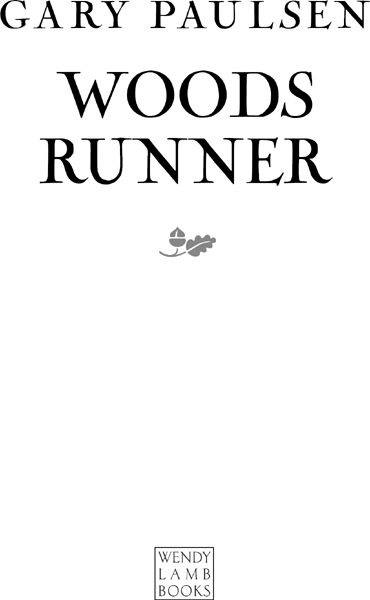
With appreciation, for Shelby
Ive written this book a bit differently from my other historical fiction, alternating the fiction with historical segments that I feel are essential for the reader. I did this for two reasons. One: I wanted to set Samuels story against the larger context of the Revolutionary War. And two: I wanted readers to understand what it was really like to live on the frontier at that time, with virtually nothingno money, no electricity, no towns, few neighborsnothing but your own strength.
PART 1
PART 2
PART 3

The Forest1776
1
H e was not sure exactly when he became a child of the forest.
One day it seemed he was eleven and playing in the dirt around the cabin or helping with chores, and the next, he was thirteen, carrying a .40-caliber Pennsylvania flintlock rifle, wearing smoked-buckskin clothing and moccasins, moving through the woods like a knife through water while he tracked deer to bring home to the cabin for meat.
He sat now by a game trail waiting for the deer he knew would come soon. He had heard it, a branch brushing a hairy side, a twig cracking, smelled it when the wind blew toward him, the musk and urine of a buck. He checked the priming on his rifle while he waited, his mind and body relaxed, patient, ears and eyes and nose alert. Quiet. Every part of him at rest, yet focused and intense.
And he pictured his life, how he lived in two worlds.
Sometimes Samuel thought that a line dividing those worlds went right through their cabin. To the west, beyond the small parchment window made of grease-soaked sheepskin scraped paper-thin, lay the forest.
The forest was unimaginably vast, impenetrable, mysterious and dark. His father had told him that a man could walk west for a month, walk as fast as he could, and never see the sun, so high and dense was the canopy of leaves.
Even close to their homesteadtwelve acres clawed out of the timber with a small log cabin and a lean-to for a barnthe forest was so thick that in the summer Samuel could not see more than ten or fifteen yards into it. Some oak and elm and maple trees were four and five feet in diameter and so tall and thickly foliaged their height could only be guessed.
A wild world.
And while there were trails made by game and sometimes used by natives, settlers or trappers, the paths wandered and meandered so that they were impossible to use in any sensible way. Except to hunt.
When he first started going into the forest, Samuel went only a short distance. That first time, though he was well armed with his light Pennsylvania rifle and dry powder and a good knife, he instantly felt that he was in an alien world.
As a human he did not belong. It was a world that did not care about man any more than it cared about dirt, or grass, or leaves. He did not get lost that first time, because hed marked trees with his knife as he walked so he could find his way out; but still, in some way he felt lost, as if, were he not careful, a part of him would disappear and never return, gone to the wildness. Samuel had heard stories of that happening to some men. They entered the forest to hunt or trap or look for new land to settle and simply vanished.
Gone to the woods, people said of them.
Some, he knew, were dead. Killed by accident, or panthers or bear or Indians. He had seen such bodies. One, a man mauled to death by a bear that had attacked his horse while the man was plowing; the mans head was eaten; another, killed by an arrow through the throat. An arrow, Samuel knew, that came out of the woods from a bow that was never seen, shot by a man who was never known. And when he was small, safe inside the cabin near the mud-brick fireplace with his mother and father, he had heard the panthers scream; they sounded like a woman gone mad.
Oh, he knew the forest could kill. Once, sitting by the fire, a distant relative, a shirttail uncle who was a very old man of nearly fifty named Ishmael, had looked over his shoulder as if expecting to see monsters and said, Nothing dies of old age in the forest. Not bugs, not deer, not bear nor panthers nor man. Live long enough, be slow enough, get old enough and something eats you. Everything kills.
And yet Samuel loved the forest now. He knew the sounds and smells and images like he knew his own mind, his own yard. Each time he had entered hed gone farther, learned more, marked more trees with his knife, until he always knew where he was. Now he thought of the deep forest as his home, as much as their cabin.
But some men vanished for other reasons, too. Because the forest pulled them and the wild would not let them go. Three years ago, when Samuel was ten, he had seen one of these men, a man who moved like smoke, his rifle a part of his arm, a tomahawk through his belt next to a slab-bladed knife, eyes that saw all things, ears that heard all things. One family in the settlement had a room on their cabin that was a kind of store. The man had come to the store to buy small bits of cloth and powder and English flints for his rifle at the same time Samuel was waiting for his mother to buy thread.
The man smelled of deep forest, of smoke and blood and grease and something greenSamuel knew he smelled that way, too. The stranger could not be still. As he stood waiting, he moved. Though he was courteous and nodded to people, as soon as he had the supplies for his rifle and some salt, he left. He was there one moment and gone the next, into the trees, gliding on soft moccasins to become part of the forest, as much as any tree or leaf or animal. He went west.
Away from man, away from the buildings and the settled land.
Now Samuel heard a new sound. He moved his eyes slowly to the left without turning his head and was rewarded by seeing a tick-infested rabbit sitting by a tree trying to clear the insects out of his ears. Samuel smiled. Even in dead of winter the rabbits were always trying to rid themselves of the pests.
Font size:
Interval:
Bookmark:
Similar books «Woods Runner»
Look at similar books to Woods Runner. We have selected literature similar in name and meaning in the hope of providing readers with more options to find new, interesting, not yet read works.
Discussion, reviews of the book Woods Runner and just readers' own opinions. Leave your comments, write what you think about the work, its meaning or the main characters. Specify what exactly you liked and what you didn't like, and why you think so.

